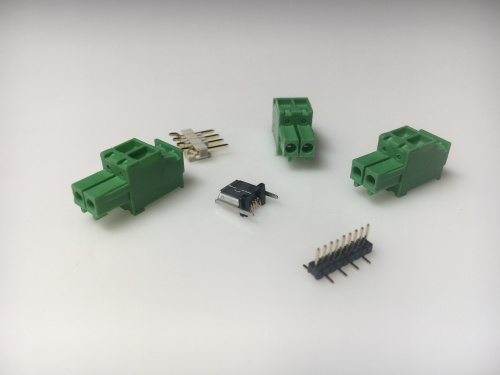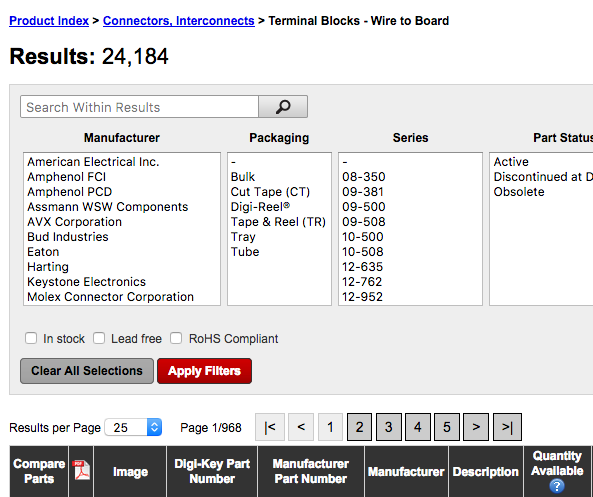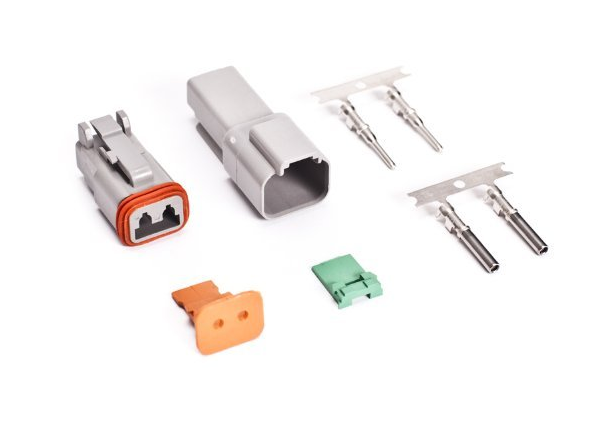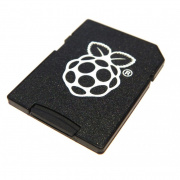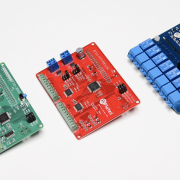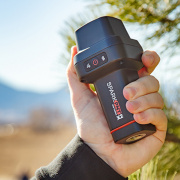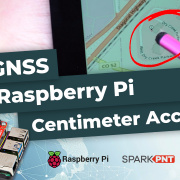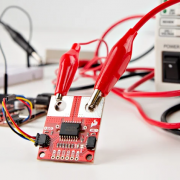The Wild World of Connectors
The market for connectors is enormous. Let's discuss how to find the connector that works for you.
If you haven't picked up on the sarcasm in the title, this is going to be a dry blog post. I'm working on something cool with asset tracking for next time, but didn't have it ready for this turn. So today, let's go over the ins and outs of finding a connector that works for your design.
It annoys me to no end to see incomplete projects. I love when people share what they've made with our parts, but hate the jumble of wires sticking out of a breadboard in an incoherent mess on someone's desktop. Don't get me wrong, you've made progress and that's awesome, but finish the project. Now there's a ton of ways I would suggest finishing a project, but the biggest is – USE CONNECTORS!
Connectors are here to make life easy. Yes, it requires assembly and soldering. But at the end of the day, it gives your product a finished/professional look and will greatly increase its lifespan. I can't tell you how often I see people fumbling with homemade wire harnesses at shows and events because a solder jointed popped or a kink in the wire has caused issues (things that can happen with connectors, yes, but in my experience much less when you use them).
There are many reasons people don't like using connectors. If you're soldering anyway, why add an extra step with a connector? And of course the issue of all issues – it adds cost to the project. But the one that irritates me most is the complaint, "None will work for my project." The interconnect market worldwide is huge – $39 billion (USD) a year. There's the standard connectors you know and recognize. Then there's thousands of less known connector styles that could very well fit your needs. Some might need to be soldered, some require unnecessarily expensive crimp tools, but there are a multitude of variations that should meet your needs. However, this brings up the question, where do you find them?
As part of my role at SparkFun, I have regular meetings where a manufacturer rep will come to the office and bring cases of their products (more often connectors, but occasionally ICs and sensors). Having access to this and having to source connectors without seeing them, I have to say, it's much easier when they're sitting in front of you, but that's a luxury most do not have. You can still get evaluation units but finding the type that works for you is still difficult online, so below are some tips I have for finding the right connector.
Know the correct terminology
Do you know how many times I've said to myself, "Oh, THAT'S what they're called!"? Knowing the correct terminology for the connector and what it does helps narrow your search and brings up new sources you might not have found before. The biggest are these three: Board to Board, Board to Wire and Wire to Wire. Knowing these three terms and what types of connectors they refer to helps narrow your search dramatically. Each describes the connection being made: Is it connecting boards, wires, or wires to a board? From there, there's a number of different descriptive words that can be used to narrow the search further. For example, features like polarized, surface mount, right angle, etc. (this example list is comically small in the interest of time). At this point, you're able to start generating lists small enough to go through dimensional drawings or pictures. Don't be afraid to ask about terminology. Very few people could give a definitive descriptive name for every connector type, so there's no shame in asking (not that there ever is, but some people feel embarrassed about doing so).
Having your needs down
The number of pins, the size, and the electrical properties are the next things to look at. Connector families will usually have a landing page, whether it's on the manufacturer's site or retail sites like Digikey. On these pages will be general characteristics of the connector family; this is going to let you know at a high level whether this connector is going to work for you. But that's the easy part. The hard part is figuring out what you're not thinking about (easier said than done, right?). Think about what environment this connector will be used in. Is it a more permanent connection, or will it go through a lot of plug-unplug cycles? Is there a chance it will be exposed to water? Will there be a lot forces acting on the connector (does it need be reinforced)? Like I said, this seems so simple, but things like this often won't be figured out until you have it in use. SparkFun has learned this lesson many times.
Keep your options open
Even when you find what you need, there could be competing companies making similar products. One could be cheaper; one could have a more favorable configuration or feature – evaluate all options. I understand this is getting a bit involved for something you're going to spend very little money on, but you might find a set of connectors you want to use on all of your projects. As an add to this, most companies will do custom variations of connectors if the quantity is high enough (useful if you plan on going to market).
Look outside the big companies
Companies like Digikey and Mouser have almost everything. While starting with them is the best way to evaluate a bunch of different brands all at once, there's some they don't stock or carry. Be ready to look outside those companies to the actual manufacturers. This goes back to the knowing the terminology part – if you can put the right keywords into Google, you're likely to get a good lead on the first page of results. In that review of the connector industry above, the top 10 companies account for 50 percent of the total market revenue, but the second half represents hundreds of smaller companies.
Have an open mind
There are a lot of factors - some we've covered and some we haven't - that could dissuade you from using a specific connector. But keep an open mind. Your concern about the pricing could be easily canceled out by the ease of use or ability to customize pin locations. Think of it like playing with a new dev board or microcontroller. There's a lot of pride these days in finding handy parts; you'll never find them if you don't give some a chance.
SparkFun isn't in a position to carry a multitude of different connectors, in fact most resale companies aren't. You'll see a ton of 0 stock parts with the bigger component companies. If they can't, we definitely shouldn't try. So really what I'm suggesting here is shopping for connectors somewhere else besides SparkFun. Sure we're going to have a lot of the standard connectors that work well with development boards like Arduino and Raspberry Pi, but adventure out. Find a connector that is going to work well and keep your project running and intact. Additionally, if you have a family of connectors you love to use, point them out in the comments.
